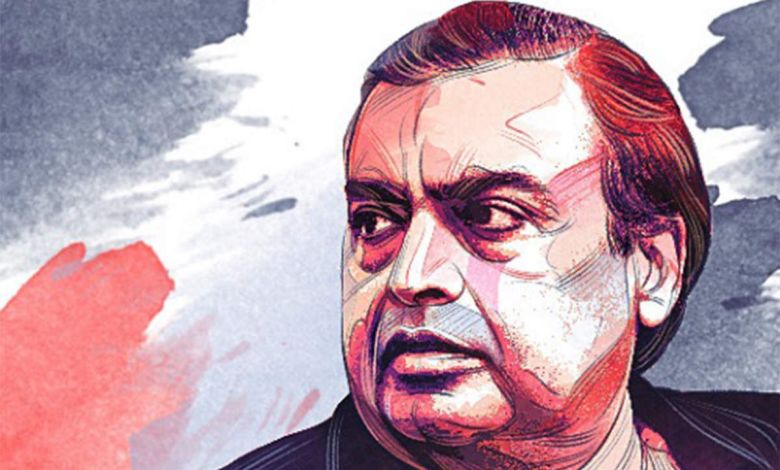ADIA and PIF have contributed a total $2.2 billion to Jio Platforms’ $20.8 billion fundraise from 13 investors, led by Facebook
Saudi Arabia’s Public Investment Fund (PIF) has initiated discussions with Reliance Industries (RIL) on investing as much as $1 billion in Jio’s fibre assets, said several people aware of the matter, adding to a stake purchase in Jio Platforms.
The sovereign wealth fund (SWF) is in the process of rejigging its $300 billion portfolio – booking profits from its large Silicon Valley, Big Oil and aviation bets and withdrawing from English Premier League club investments.
PIF began talks after rival Abu Dhabi Investment Authority (ADIA) re-engaged with Jio on a plan to invest about $1 billion in its pan-India fibre assets, said the people cited above. RIL declined to comment. PIF didn’t respond to queries.
Both ADIA and PIF have contributed a total $2.2 billion to Jio Platform’s $20.8 billion fundraise that saw 13 investors, led by Facebook, coming on board in less than three months. A fibre deal could further strengthen ties between the Kingdom and India’s biggest company.
“Saudi Aramco is already negotiating to invest in Reliance’s refining and petrochemical business,” said a long-time Ambani family associate.
“From a pure vendor arrangement between an oil producer and a refiner, both Crown Prince Mohammed bin Salman and (RIL chairman) Mukesh Ambani want to cement their association as strategic partners.”
Anchor investors
To be sure, the ongoing talks may not translate into a deal, said the people cited above.
After divesting its towers to Canada’s Brookfield in 2019 for Rs 25,215 crore (about $4 billion), RIL’s efforts to unlock value in its fibre assets were part of a series of time-bound asset-monetisation initiatives to pare debt. RIL had transferred its tower and fibre assets to two special purpose vehicles (SPVs) owned by two Sebi-registered InvITs or infrastructure investment trusts.
But late last year, these talks were put in cold storage over differences in commercial and operating terms between RIL and an ADIA-led consortium of GIC of Singapore and I Squared Capital, an infrastructure-focused fund. At stake was a controlling stake in the fibre InVIT, Jio Digital Fibre. Mukesh Ambani’s family office had also offered to co-invest at the time. The tower trade is yet to receive regulatory approvals.
ET was the first to report July 8 that negotiations with ADIA had been revived.
“The re-engagement has given that extra nudge to PIF,” said one of the persons cited above. “The prolonged trend of work from home, schooling, entertainment from home has catalysed a shift in consumer preference, which in turn makes the investment thesis stronger in a country that is already among the most under-penetrated in Asia broadband connectivity.”
Fixed broadband penetration is less than 20% while that of wirelines is 7% in India. Jio has built up the largest fibre network in the country and aims to take advantage of a broadband market that’s expected to grow two-five times in terms of subscribers.
ADIA and PIF are expected to be anchor investors in the InvIT with the former possibly leading the consortium. The broad contours of this transaction are similar to that of the Brookfield-Jio tower deal – a 30-year sale and buyback with an assured return to investors. Jio is believed to have offered 10-13% internal rates of return on equity to investors, said people aware of the matter.
The equity value of the fibre backbone is pegged at around $8 billion, excluding liabilities. Revenue upside from sales generated by third parties using the network are being finalised. In the past, up to 50% of the fibre capacity, as per the terms offered by RIL, was to be used by Jio for its own subscribers while the rest was meant for third-party users.
Interestingly, PIF was to be a part of the investor consortium in the tower InvIT along with Canadian pension fund BCIMC and Singapore’s GIC.
Bundled offerings
Jio’s entire business model thrives on superior connectivity on the back of digital infrastructure, high-quality but affordable service and agile adoption in the other digital ecosystems through bundled offerings that can be subsequently monetised.
“With the commercial launch of Jio Fibre, Jio has been targeting the post-paid segment of incumbents’ mobile users through its mobile number portability (MNP) services & bundled offers for home users. While post-paid has traditionally displayed a high level of stickiness, it was feared that these actions could potentially lead to higher churn in this segment for Bharti,” argued Arthur Pineda, analyst with Citi.
Instead of being a “passive dumb pipe”, it’s Fiber to the home (FTTH) services has already connected 1 million users and aims to connect another 500 million customers and over 50 million homes and 15 million enterprises with high-speed fibre across 1600 cities in the next five years.
Jio has laid 700,000 route kilometre, which is being increased to approximately 1,100,000 route kms, of built and under-development fibre. As at March 31, 2020, RIL has investments of Rs 78,107 crore in the equity and Optionally Convertible Preference Shares (‘OCPS’) of Jio Digital Fiber Private Limited (‘JDFPL’) and Reliance Jio Infratel Private Limited. Analysts calculate, RIL holds Rs 40,100 crore non convertible debentures (NCDs) in the tower and fibre SPVs and will receive cash in lieu of these securities, as and when the InvIT transactions close.
In April 2019, RIL said the two trusts have acquired 51% stakes each in Jio’s fibre and tower units — Jio Digital Fibre Pvt Ltd (JDFPL) and Reliance Jio Infratel Pvt Ltd (RJIPL). The trusts are sponsored by RIL’s 100% subsidiary, Reliance Industrial Investments and Holdings Ltd (RIIHL). These were a precursor to onboard a strategic investors in them and deleverage its consolidated balance sheet.
Latest estimate suggest Reliance Jio’s net debt to be at Rs 22,200 crore ($3 billion) and another Rs 37,000 crore ($5 billion) of spectrum liabilities.













![Hotstar Premium Cookies 2019 [*100% Working & Daily Updated*] Hotstar Premium Cookies 2019 [*100% Working & Daily Updated*]](https://tahav.com/wp-content/uploads/2019/11/Hotstar-Premium-Cookies-Free-100x70.jpg)



